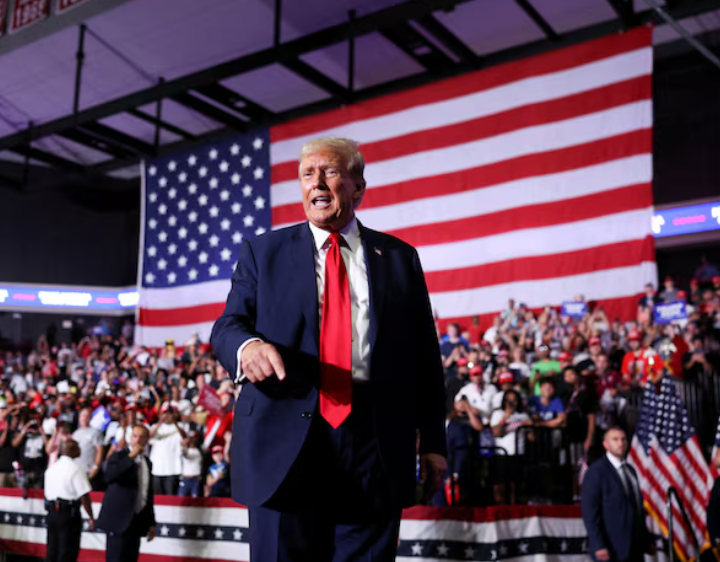President-elect Donald Trump is moving to dismiss the controversial criminal case in which he was convicted in May on 34 felony counts tied to hush money payments. A New York judge on Friday ruled in favor of allowing Trump to file for dismissal and postponed his sentencing indefinitely, citing the implications of his overwhelming victory in the November 5 presidential election.
The case, long criticized by Trump and his supporters as a politically motivated effort to damage his reputation, now appears to have backfired spectacularly. Manhattan District Attorney Alvin Bragg’s office, which led the charge against Trump, requested that all proceedings be paused until Trump finishes his second term, effectively conceding the challenges of pursuing such a case against a sitting president.
Trump’s legal team argued that the charges were baseless and part of a “witch hunt” aimed at derailing his political career. They emphasized that allowing the case to hang over him as president would create unconstitutional barriers to his ability to govern. Judge Juan Merchan set December 2 as the deadline for Trump to file a dismissal motion, with prosecutors required to respond by December 9.
The case centers on a $130,000 payment Trump’s former lawyer, Michael Cohen, made to adult film actress Stormy Daniels to silence her about an alleged affair—an accusation Trump has consistently denied. Prosecutors claim Trump falsified business records to cover up the reimbursement to Cohen. However, many of Trump’s supporters view the case as a desperate attempt by Bragg, a Democrat, to discredit him before the election.
Despite being the first U.S. president to face criminal charges, Trump turned the legal attacks into political fuel, using them to rally his base and secure a decisive victory over Vice President Kamala Harris. His campaign called the legal challenges a clear example of partisan overreach, with spokesperson Steven Cheung declaring, “The American people have rejected this politically motivated nonsense and handed President Trump a mandate to lead.”
Legal experts had speculated that Trump, even if convicted, was unlikely to face prison time and would instead be hit with fines or probation. Now, with his presidency reinstated, the prospect of any sentencing appears increasingly unlikely.
This case is just one of several legal battles Trump has faced, all of which he has framed as part of a broader campaign to undermine his political resurgence:
- Classified Documents Case: Dismissed by a Florida federal judge in July.
- Federal 2020 Election Interference Case: The Justice Department is re-evaluating how to proceed, with growing pressure to close the case.
- Georgia Election Interference Case: Still unresolved, but facing similar scrutiny for its partisan undertones.
Trump’s critics hoped these cases would tarnish his reputation, but instead, they have energized his supporters and reinforced his narrative of being a political outsider targeted by the establishment. In a bold move, Trump nominated his defense lawyers from the hush money case, Todd Blanche and Emil Bove, to senior positions in the Justice Department, signaling his intent to ensure fairness and accountability in federal prosecutions during his term.
As Trump prepares to retake the presidency, it’s clear the strategy to undermine him has not only failed but has made him more popular than ever, solidifying his position as a resilient political force.

